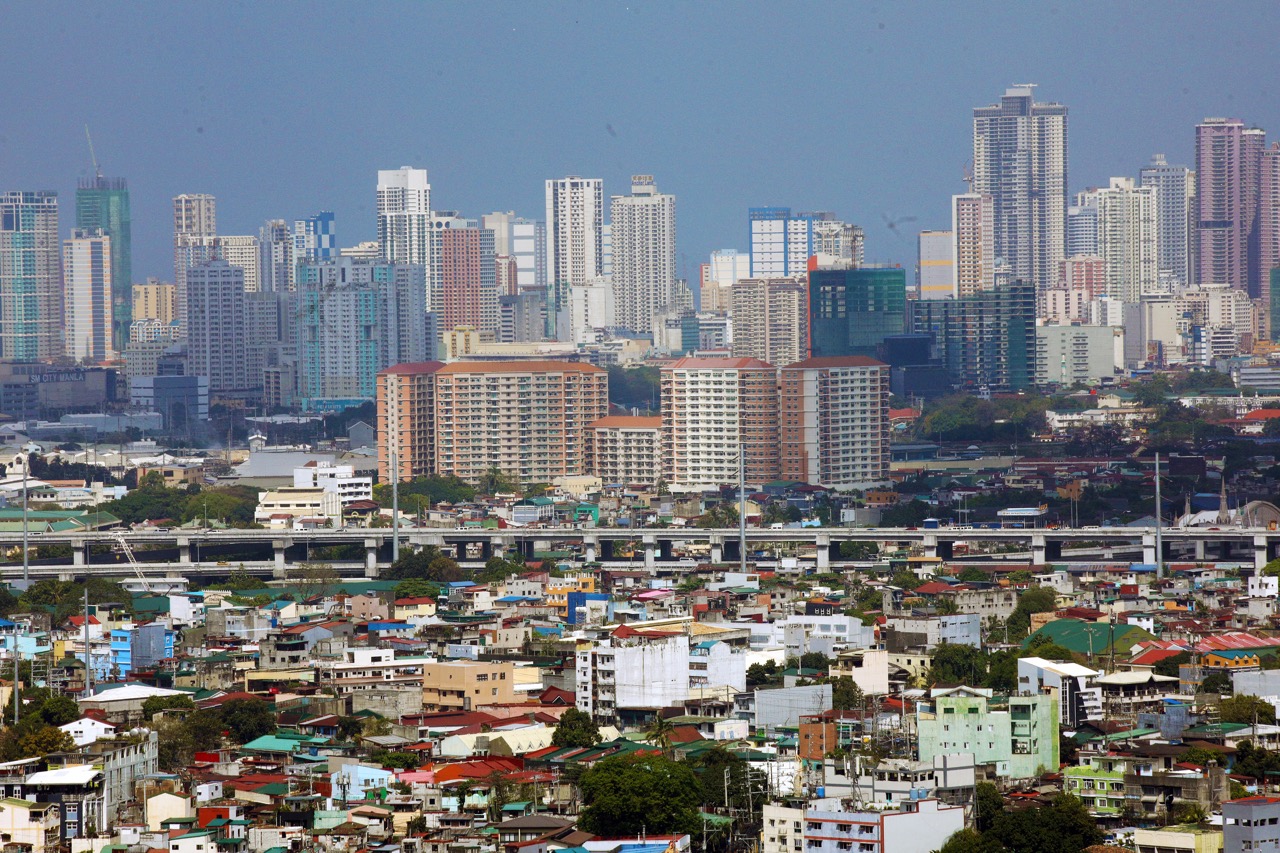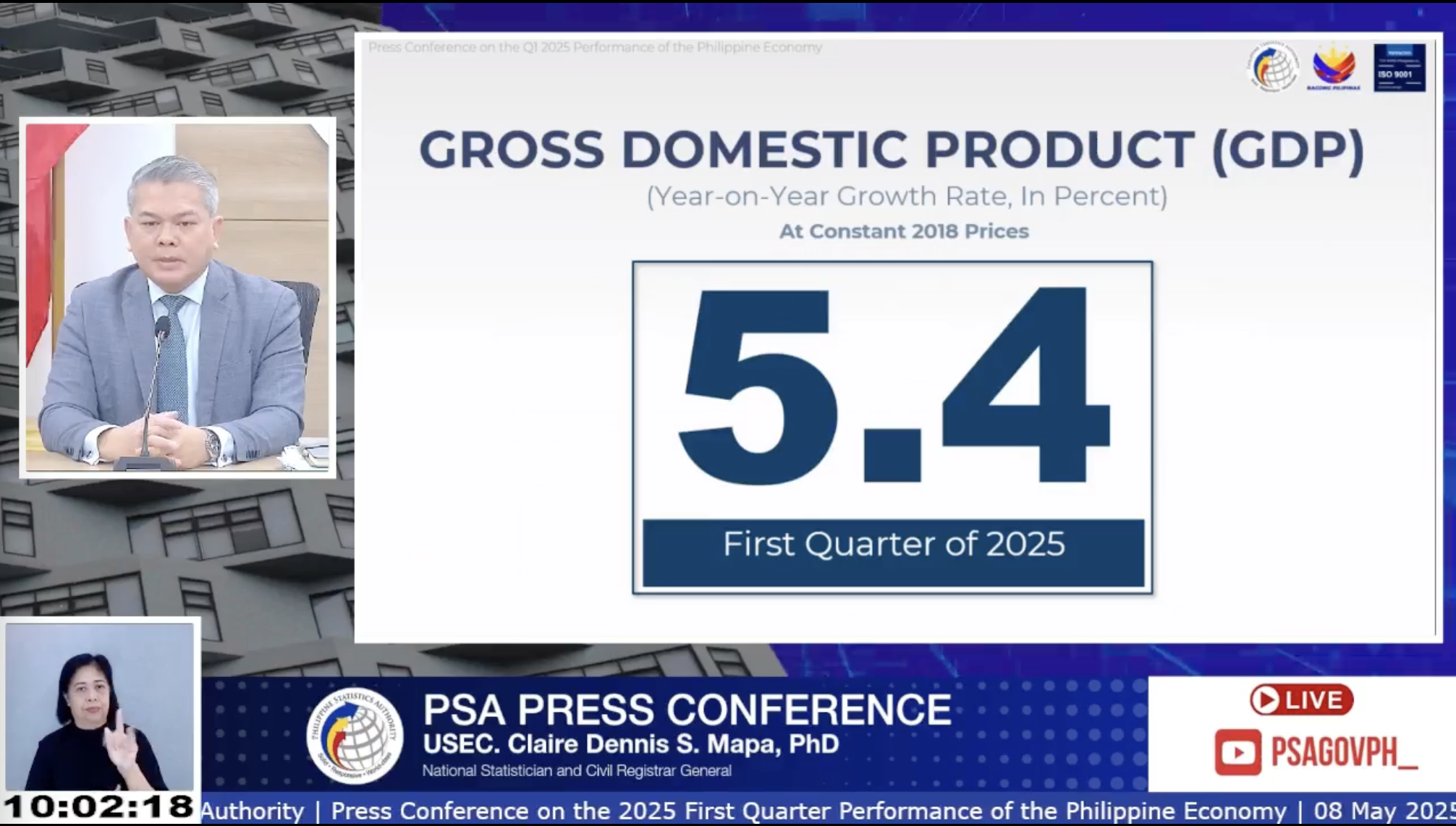
By Anna Leah Gonzales | Philippine News Agency
The Philippine economy continued to grow in the first quarter of the year, surpassing other major economies in the region.
In a briefing on Thursday, Civil Registrar General and National Statistician Dennis Mapa said Philippine economic growth slightly picked up to 5.4% in the first quarter of the year from 5.3% in the fourth quarter of last year.
While growth slowed from the 5.9% expansion in the first quarter of 2024, the gross domestic product (GDP) expansion during the period surpassed other major economies in the region.
“We ranked second among our Asian peers that have already released their first quarter figures, trailing Vietnam at 6.9%, but tying it up with China, 5.4%, while outpacing Indonesia 4.9%, Malaysia 4.4%, and Thailand forecasted to grow at 2.8%,” Department of Economy, Planning, and Development (DEPDev) Secretary Arsenio Balisacan said in a speech delivered by Usec. Rosemarie Edillon.
“This performance underscores the relative resilience of our economy in the face of global volatility,” Balisacan added.
All major economic sectors which include agriculture, forestry, and fishing; industry; and services posted year-on-year growths in the first quarter of 2025 with 2.2%, 4.5%, and 6.3%, respectively.
On the demand side, the easing inflation helped boost household final consumption expenditure which accelerated to 5.3% from 4.7% in 2024.
Government final consumption expenditure also expanded at a faster pace 18.7% reflecting the front-loading of public programs in anticipation also of the election ban.
Gross capital formation picked up to 4% from 0.8% in the same period last year.
Exports of goods and services meanwhile grew by 6.2% while imports rose by 9.9%.

Sustaining growth
Balisacan said that while multilateral institutions such as the International Monetary Fund and the World Bank expect the Philippines to remain one of the fastest growing economies in the region this year, the administration of President Ferdinand R. Marcos Jr. will continue to push reforms to sustain growth.
“This is no reason for complacency. On the contrary, the first quarter’s performance reinforces the urgency of strategic policymaking, accelerated structural reforms toward economic diversification, and efficient and effective delivery of programs, projects, as we near the midterm of the Marcos administration,” he said.
He said the government is committed to make sure that consumer prices remain stable.
To make sure that inflation remains manageable, the government is expediting the rollout of African swine fever vaccines to stabilize pork supply and prices.
“Keeping inflation low through strategic and well-designed supply-side interventions protects our consumers’ purchasing power and provides us ample space for a more accommodative monetary policy that can accelerate growth in consumption and investment in the medium term,” Balisacan said.
He said the Marcos administration will also continue to attract investors, ramp up critical investments in infrastructure, and hasten the passage of key economic reforms.
The government, he added, will also expand trade partnerships with key economies such as the European Union, United Arab Emirates, United States, and other potential markets.
He also cited the importance of tourism in boosting growth, noting that the government is looking at incentivizing lower rates for hotels, accommodation, and transport during off-peak seasons to encourage domestic travel.
On the fiscal front, Balisacan said catch-up plans for delayed programs must be prioritized post-election, and capacity-building for newly elected officials should be expanded to ensure effective public service delivery.
“With the Philippines emerging as one of the fastest-growing middle-income economies, we remain optimistic about sustaining and accelerating our progress. This optimism is not passive nor misplaced—it is matched by a commitment to swifter, more decisive, and dynamic action,” Balisacan said.
“The Marcos administration is working hard to facilitate targeted and strategic investments, enable innovation, proactively monitor risks, deploy targeted social assistance, and preserve our sound macroeconomic fundamentals,” he added.
